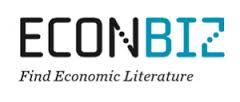Assessing the Role of TRIPS Agreement for Inaccessibility and Un-affordability of Essential Medicines in Nigeria
DOI:
https://doi.org/10.26703/jct.v10i1.192Keywords:
Anti-Globalisation, Pharmaceutical, Pharmaceutical Corporations, Patent, Essential Drugs, NigeriaAbstract
Intellectual property rights (IPRs) protection was not recognised in Nigeria and essential medicines were accessible and
affordable to all but reverse is the case with the implementation of TRIPS agreement on IPRs. This resulted in inordinate
policy formulation and implementation that exacerbates the public health care despite Nigeria’s endowment with enormous
human and natural resources. This paper argues that patents protection hinders access and affordability to essential
medicines in Nigeria. It also argues that pharmaceutical companies prevent developing countries from utilising the TRIPS
flexibilities to access essential medicines for their citizens. It concludes that access and affordability to essential medicines
are additional challenges to Nigeria. The paper is based on the anti-corporate globalisation movement theory. The theory advocates for a world structured by human values other than greed and domination, one less dominated by the culture and values of global capital. The economic, political, and cultural interconnectedness signified by globalisation is irreversible and possibly a good thing,
this interconnection, could potentially serve the interests of people and the earth, not just the elites. Although the rich and
powerful have shaped globalisation in their interest, the anti-globalisation theory is a counter-movement that seeks to
reshape the interconnected world in the interests of people and the planet.
Downloads
References
Bossche, P. V. (200&), The Law and Policy of the World Trade Organisation: Text, Cases and Materials,
Cambridge, Cambridge University Press.
Brecher, J., et al,. (2000), Globalisation from Below, Cambridge, MA: South End Press.
Ladan, M. T. (2007), Materials and Cases on Public International Law, Zaria, ABU Press.
Ayodele, A. (2009), “Globalisation, The TRIPS Agreement and their Implications on Access to Essential
Medicine for Developing Countries: A Case Study of Nigeria”, Vol. 2, Part 1, Confluence Journal of
Private and Property Law (CJPPL), Kogi State University, Anyigba.
Reichman, J. H., et al, (2014), “The WTO Compatibility of a Differentiated International Exhaustion
Regime’, International Laboratory for Law and Development.
Adejugbe, A. “Nigeria: Protection of Intellectual Property in Nigeria; Effect of Grey Market Goods;
Challenges and Solutions”, available at <http://www.mondaq.com/x/307654/Trademark/
PROTECTION+OF+INTELLECTUAL+PROPERTY+IN+NIGERIA+EFFECT+OF+GRAY> .
“Alternative Regionalisms,” available at <http://www.tni.org/article/alternatives-neo-liberalglobalisation>
Alsegård, E. “Global pharmaceutical patents after the Doha Declaration – What lies in the future?”
available at <http://www.law.ed.ac.uk/ahrc/script-ed/docs/doha.asp>.
Burdacki, S. “Strategy, Tactics and Solidarity: The Anti-Globalisation Movements and its Discontents”,
available at <http://bad.eserver.org/issues/2004/65/burdacki.html>
Buttel, F. H. “Environmentalism and the Trajectory of the Anti-Corporate Globalisation Movement”,
available at <http://www.irows.ucr.edu/cd/courses/184/buttelgould.htm>
Delaney, L., “What is Parallel Importation?”, available at <http://importexport.about.com/od/
ImportMarketResearch/a/Parallel-Importing.htm.>.
Haddad, W. F., “Compulsory Licensing of Life-Saving Medicines: A Story and A History, A Problem and
A Solution”, available at < http://www.equilibri.net/nuovo/articolo/compulsory-licensing-life-savingmedicines-%
E2%80%9C-story-and-history%E2%80%9D-%E2%80%9C-problem-andsolution%
E2%80%9D>.
JAAids, “Coalition of Civil Society Groups on Access to Essential Medicines in Nigeria”, available at
<http://www.nigeria-aids.org/reports.cfm?read=74>.
Maskus, K. E., “Parallel Imports in Pharmaceutical: Implications for Competition and Prices in Developing
Countries’, available at < http://www.wipo.int/export/sites/www/about-ip/en/studies/pdf/
ssa_maskus_pi.pdf>.
Matthews, D. “On the TRIPS Agreement and Public Health: A Solution to the Access to Essential Medicines
Problem,” available at < http://jiel.oxfordjournals.org/content/7/1/73>
Morse, C. “Theory of the Anti Globalisation Movement”, Vol. 2, No. 1, (2003), New Formulation, available
at <http://www.newformulation.org/1antiglobalization.htm>
Musungu, S., and Oh, C., “The Use of Flexibilities in TRIPS By Developing Countries: Can They Promote
Access To Medicines?, available at < http://www.who.int/intellectualproperty/studies/
TRIPS_flexibilities/en/>.
Nwobike, J. C. “Pharmaceutical Corporations and Access to Drugs in Developing Countries: The Way
Forward’, available at < http://www.surjournal.org/eng/conteudos/artigos4/ing/artigo_nwobike.htm>
Philipson Consultancy Blog, “Parallel Imports and the Exhaustion Doctrine: Lessons for Nigeria”, available
at <http://phillipsonsconsultancy.com/blog/2013/05/parallel-imports-nigeria/>.
Satardien, M. Z. “A Critical Analysis of the Trade Related Aspects of Intellectual Property Rights Agreement
and has South Africa Complied with this Agreement with Special Reference to Patented Pharmaceuticals,”
available at <http://etd.uwc.ac.za/xmlui/handle/11394/2153>
Schmidt, C. W. ‘Drugs as Intellectual Property”, available at <http://pubs.acs.org/subscribe/archive/
mdd/v04/i06/html/06rules.html>.
“Swiss Network for International Studies, Examining Global Partnership to Improve Innovation and Access
to Medicines on a Sustainable, Priority Needs Basis; MDG8, Target 8,R,” available at <’http://
www.snis.ch/call-projects-2011_847_examining-global-partnerships-improve-innovation-andaccess-
medicines-sustain>.
“The Social Meaning of the Anti-WTO Protests in Seattle”, (1999), available at <https://www.wsws.org/
en/articles/1999/12/wto-d06.html>
Thurston, J., “Compulsory Liceses: Necessity or Threat?”, available at <http://www.rsc.org/
chemistryworld/2013/05/compulsory-licence-license-patent-drugs-debate>.
Ukiri, E. O. “Parallel Imports – How to Manage the Problem”, available at <http://www.enownow.com/
news/story.php?sno=12295>.
WHO, “Essential Medicine and Health Products”, available at <http://www.who.int/medicines/areas/policy/
wto_impl_para6/en//>
WHO, “The Global Politics of Pharmaceutical Monopoly Power, Drug Patents, Access, Innovation and
the Application of the WTO Doha Declaration on TRIPS and Public Health”, available at
apps.who.int/medicinedocs/en/m/abstract/Js20963en/>.
World Health Organisation, “In Vitro Diagnostics and Laboratory Technology”, available at
www.who.int/diagnostics_laboratory/publications/procurement/en/>
WTO, “Compulsory Licensing of Pharceuticals and TRIPS”, available at <http://www.wto.org/english/
tratop_e/trips_e/public_health_faq_e.htm>.
WTO, “The Doha Declaration on the TRIPS Agreement and Public Health’, available at
www.who.int/medicines/areas/policy/doha_declaration/en/>.
‘WTO, “WHO Secretariat Workshop on Affordable Drugs”, available at <http://www.wto.org/english/
tratop_e/trips_e/tn_hosbjor_e.htm>.

Downloads
Published
Issue
Section
License
Copyright (c) 2015 Umar Abubakar Dubagari

This work is licensed under a Creative Commons Attribution 4.0 International License.










